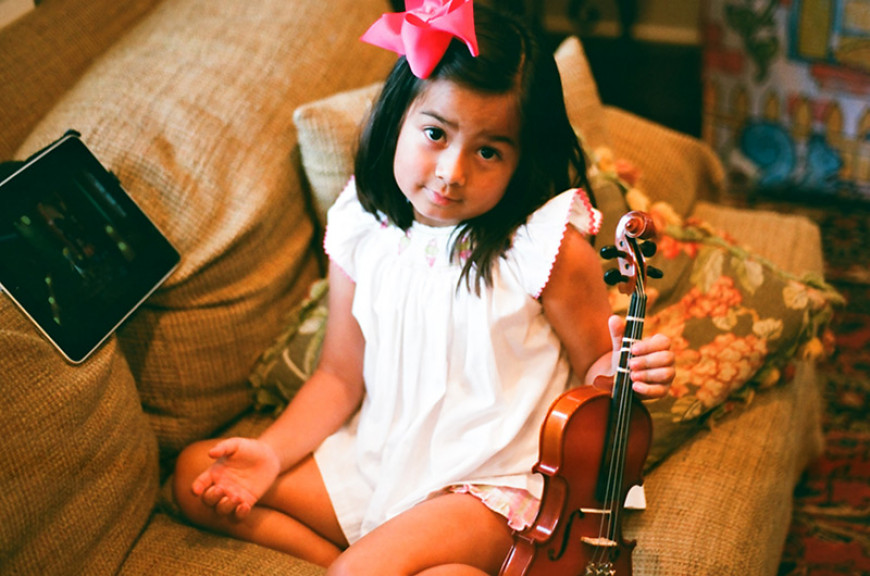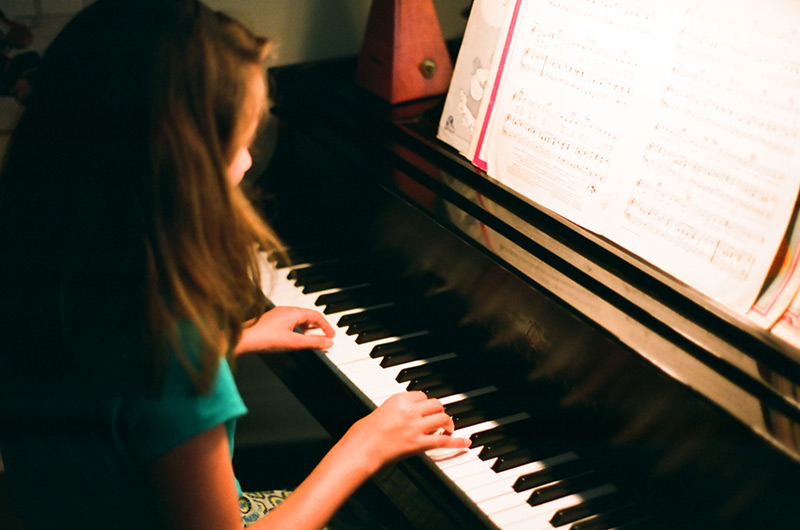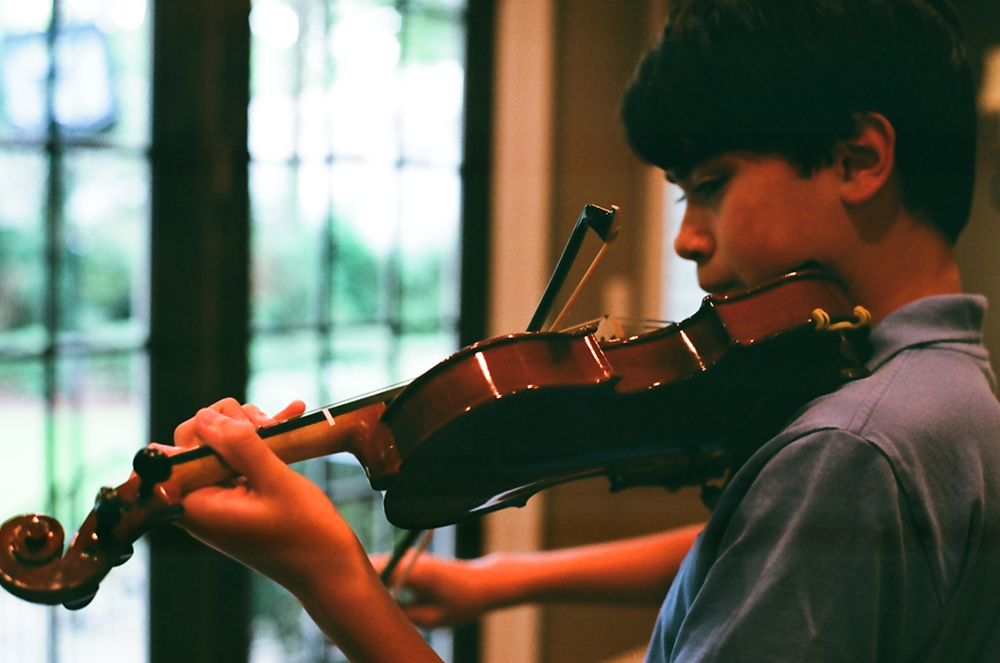Getting Started with Music Lessons

| Lessonface Parents Guide |
|---|
Other great reading:
|
Is My Child Ready for Music Lessons?
The answer to this question varies depending on your child’s development and interests. There is “a lot of evidence” that starting music early in life helps with a child’s development. So it makes sense to consider music lessons as soon as your child seems ready/inclined to try them.
Here is a quick checklist for determining whether your child is ready:
- Focus: Your child should be able to focus on a task. Children’s lessons typically last 30 minutes with 15-30 minutes of daily practice.
- Development: Your child should be able to tell the difference between the left and right hands, as well as being able to count to ten and knowing the letters A through G. Your child should possess some fine motor coordination, such as moving fingers independently.
- Interest: If your child is excited by an instrument, and physically capable of handling it, then he/she probably has the enthusiasm and maturity needed to begin learning the instrument.
Younger children sometimes begin in group lessons that can foster social interaction in a nurturing environment. But as long as your child expresses interest and has the necessary physical capabilities, private lessons are likewise an option. In any event, make sure that the lessons and practices are not too long, but are regular and consistent.
How to Choose an Instrument
We suggest keeping in mind the following factors:
Accessibility
Many students start with the piano as foundational instrument to understand how music works. The horizontal layout of the keyboard offers a wonderful visual representation of the notes that aids in learning basic music theory.
Physical development
It’s necessary to consider size and complexity-to-play (for instance, most tubas are bigger than most toddlers). Focus on something that your child can physically play; and don’t forget that many instruments have smaller cousins that can be a great entry-point to an instrument family. If your son is set on being a guitarist but a guitar weighs more than he does, it might be worthwhile to think about a ukulele in order to start building familiarity with plucked stringed instruments. It’s also worthwhile to remember that the instrument you choose now does not have to be the instrument that your child plays forever.
Cost
A harp or drums will be more expensive than a recorder or harmonica (let’s not forget that your voice costs nothing at all!). If a piano won’t fit in your apartment and/or budget, consider an electronic keyboard. Each family’s financial situation is personal so set your own price limit and then work backwards from there. It can be helpful to consider the cost of lessons when calculating this investment in your child.
True Love
We’re also big proponents of interest and natural talent, of course. If your child finds the bassoon beguiling, or has a strong opinion on the violin, that would be a huge factor. Learning to play an instrument takes a lot of time and energy, and so finding an instrument that your child is excited may play a large role in helping them maintain interest. Observe your child for some natural musical instincts that he/she might already have. If your child has started humming or singing, maybe he/she should start out with vocal lessons. If he/she taps on everything in sight, then maybe drum lessons might be the right fit. Starting with interest can also be a great way to ensure that your kids stick with the instrument and also enjoy their practice time.
Instrument Ideas Based on Your Child's Age (and Size)
Instrument Ideas for Children Under Six Years Old
Drums and voice come to mind most quickly with children of this age group, for obvious reasons. Other instruments some people say can be played before six are the violin, piano, xylophone, and recorder. Some suggest starting on these instruments as early as four or five years old.
Young children often naturally move to music – you may have laughed with your child bouncing along to music before he or she could talk. (That free-spirited toddler dance is called sympathetic kinesthesia, and it’s something that many people lose as they age and become more self-aware, or else we’d unconsciously dance our way through life.) Likewise, many children naturally gravitate towards musical instruments and like to make sounds.
Hand drums are an excellent option for younger children. Whether it’s the bongo, conga, or djembe with experienced teachers like Todd Isler or Tareq Rantisi, developing rhythm can help throughout your child’s life.
Singing with your child is also great in this stage – think of it in the same way you would reading before bed. As soon as we develop the ability to mimic the noises we hear, we use our voices to entertain ourselves. Singing with your child develops a deep bond and awakens the child’s desire to sing – which can pay off with the development of confidence.
You can also find great free parent-and-child music sing-along times at local cafes, schools, or via Meetup groups. Researchers at McMaster University have “found that one-year-old babies who participate in interactive music classes with their parents smile more, communicate better, and show more sophisticated brain responses to music.”
Instrument Ideas for Children Between Six & 12 Years Old
In this stage, when a child typically grows large enough to handle an instrument and can better focus for 15 or 30 minutes at a time, or even longer, more instruments become real possibilities. Of course, singing lessons may also become more of a possibility for children in this age group.
Starting children with music lessons between the ages of six and eight years old may produce a lifetime of positive development. A 2013 study by Concordia University in collaboration with the Hospital at McGill University showed powerful evidence that from six to eight years old children enter a “sensitive period” where motor skills and brain structure are heavily impacted by music lessons. "Learning to play an instrument requires coordination between hands and with visual or auditory stimuli," notes Virginia Penhune, a Concordia University professor. "Practicing an instrument before age seven likely boosts the normal maturation of connections between motor and sensory regions of the brain, creating a framework upon which ongoing training can build."
Learning piano or keyboard is a fantastic option during this important age. A full-sized guitar or bass guitar may not yet work for many children in this age group, but there are plenty of smaller options to offer your son or daughter. Junior guitars can be excellent choices for children in this bracket, or the best bet may be ukulele lessons.
The uke has only four strings and comes in various manageable sizes. There are four main ukulele models, and the smallest standard option is the 21” soprano ukulele. Khabu Young, a ukulele and guitar master teacher, suggests waiting until about seven years old before starting formal lessons. “When working with children, I've had the best success teaching ukulele and guitar starting around seven years of age,” he says. “The requisite manual dexterity develops pretty consistently around that time. [Starting] much younger than that often produces frustration which could potentially discourage the child from continuing music lessons of any kind.”
 Instrument Ideas for Ages 13 and Up
Instrument Ideas for Ages 13 and Up
“I think I missed my opportunity to enroll my kid in music.” Not true! Brown University found that “music can positively affect children of all ages.” So there’s no reason to hold off on music lessons if your child is entering the teenage years.
Generally, at this age most any instrument is within reach. General physical size and dexterity likely are no longer an issue, and motivation may be higher for those looking to play in a band or the high school orchestra. Oboe, sax, bassoon, viola… have at it!




